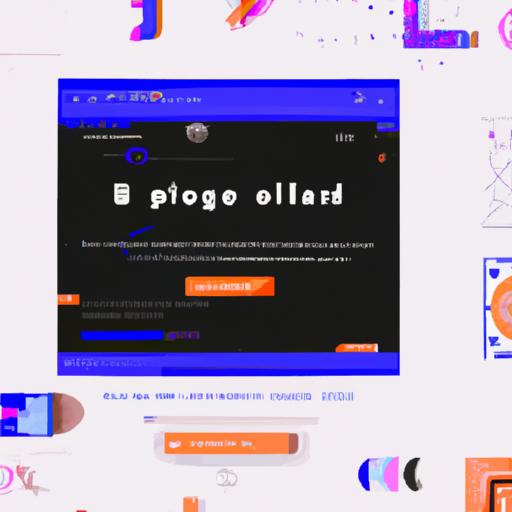Introduction
In the digital age we live in, the concept of a blogging platform has revolutionized the way we share our thoughts, ideas, and stories with the world. A blogging platform serves as the foundation for creating and publishing content online, giving individuals and businesses a voice in the vast landscape of the internet.
When it comes to choosing the best platform for blogging, the decision is crucial. It can make or break your blogging journey, impacting factors such as user experience, visibility, and ultimately, the success of your blog. Selecting the right blogging platform is akin to choosing the perfect canvas for a masterpiece – it sets the stage for your creativity to shine and your message to resonate with your audience.
As we delve deeper into the realm of blogging platforms, let us uncover the essence of what defines a platform as the best choice for your blogging endeavors. Embrace the journey ahead as we navigate through the intricate world of blogging and discover the platform that will elevate your online presence to new heights.
Factors to Consider When Choosing a Blogging Platform
User-friendliness
When selecting a blogging platform, one of the key factors to consider is its user-friendliness. A platform that is intuitive and easy to navigate can streamline your blogging experience, allowing you to focus on creating content rather than grappling with complex features and functionalities.
Customization Options
Another crucial aspect to evaluate is the level of customization options offered by the blogging platform. The ability to personalize the look and feel of your blog to align with your brand identity and aesthetic preferences can significantly enhance the overall user experience for both you and your audience.
SEO Capabilities
Optimizing your blog for search engines is essential for increasing visibility and attracting organic traffic. Thus, it is vital to assess the SEO capabilities of the blogging platform, including features such as customizable meta tags, SEO-friendly URLs, and integration with analytics tools to track your site’s performance.
Monetization Options
For those looking to monetize their blog, exploring the monetization options provided by the blogging platform is paramount. Whether through advertising, affiliate marketing, or selling digital products, having diverse monetization avenues can help you generate revenue from your blogging efforts.
Support and Community
Lastly, considering the level of support and community engagement offered by the blogging platform is crucial. Having access to reliable customer support, comprehensive documentation, and an active user community can provide valuable resources and assistance as you navigate the world of blogging.
Tips for Optimizing Your Blog on WordPress
Keyword Research and Optimization
When it comes to optimizing your blog on WordPress, keyword research and optimization play a crucial role in enhancing your visibility and attracting organic traffic. Conduct thorough research to identify relevant keywords that resonate with your target audience. Utilize tools like Google Keyword Planner or SEMrush to discover high-ranking keywords in your niche. Incorporate these keywords strategically into your content, including titles, headings, meta descriptions, and throughout the body of your posts.
Quality Content Creation
Creating high-quality, engaging content is essential for optimizing your blog on WordPress. Focus on delivering value to your readers by crafting informative and well-researched articles that address their needs and interests. Maintain a consistent publishing schedule to keep your audience engaged and coming back for more. Utilize multimedia elements such as images, videos, and infographics to enhance the visual appeal of your content and captivate your audience.
Internal Linking Strategy
An effective internal linking strategy can improve the user experience on your WordPress blog and boost your SEO efforts. Incorporate internal links within your content to guide readers to relevant pages and posts on your website. This not only helps users navigate your site more easily but also signals to search engines the relationships between different pages on your blog. Be strategic in your internal linking approach, focusing on relevance and user experience to maximize the impact of your links.
Mobile Responsiveness
In today’s mobile-first world, ensuring that your WordPress blog is mobile-responsive is paramount. With a significant portion of internet users accessing content on mobile devices, having a responsive design is essential for providing a seamless user experience. Choose a responsive theme for your WordPress site that adapts to different screen sizes and devices. Test your blog on various mobile devices to ensure that it loads quickly, displays correctly, and offers a user-friendly experience for mobile users.



